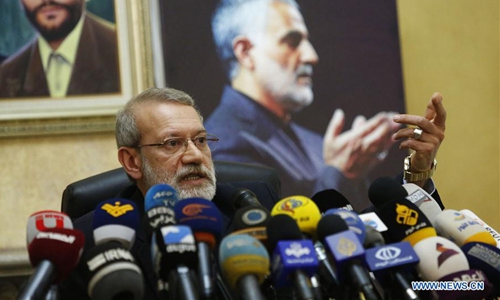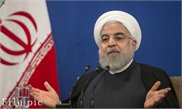
Iran's Speaker of Parliament Ali Larijani addresses a press conference at the Iranian embassy in Lebanon in Beirut, Lebanon, on Feb. 17, 2020. Iran's Speaker of Parliament Ali Larijani said Monday that his country is ready to help Lebanon in all fields amid an absence of support by the international community, local Al Manar TV channel reported. (Photo by Bilal Jawich/Xinhua)
Iran's supreme leader said Sunday that the US will be expelled from Iraq and Syria and alleged that even Washington's allies "abhor" it now.
The US "will not be staying either in Iraq or Syria and must withdraw and will certainly be expelled," said Ayatollah Ali Khamenei, according to his official website.
Both the US and Iran have weighed into Syria's conflict - Tehran backing the Damascus government, while Washington supported the Kurds against the Islamic State group - and both have been major geopolitical players in Iraq since the toppling of leader Saddam Hussein in 2003.
"Even the leaders of some of America's allies... abhor American statesmen and government, do not trust them and are indifferent towards them," Khamenei added during a video conference meeting with university students.
He claimed this was due to what he called the US' "warmongering, helping notorious governments, training terrorists, unconditional support for the Zionist regime's increasing oppression and their recent awful management of the coronavirus" pandemic.
Both countries have been hit hard by the COVID-19 disease, with the US recording the highest number of fatalities in the world and Iran battling the Middle East's deadliest outbreak.
Tensions between the arch enemies have escalated since 2018, when US President Donald Trump withdrew the US from a landmark nuclear accord and reimposed crippling sanctions on the Middle Eastern country's economy.
They have appeared to come close to direct military confrontation twice since June 2019, when Iran shot down a US drone in the Gulf.
AFP

